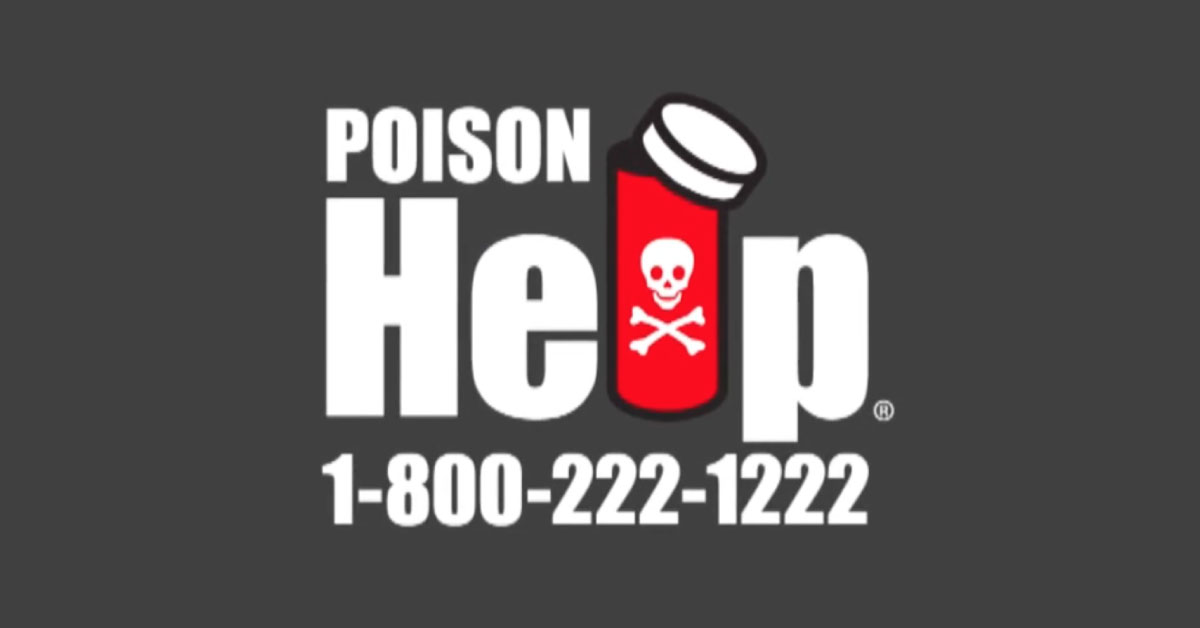Amid COVID-19 Concerns, Texas Panhandle Poison Center Warns: Don’t Drink Your Bleach
Exposure to Cleaning Products is a Leading Cause of Poisoning
 There is a lot of confusing, incomplete, and just plain inaccurate information circulating
about how to prevent the COVID-19 virus (“coronavirus”) from spreading. Some advice
measures simply won’t help, and some could be downright dangerous. The Texas Panhandle Poison Center (TPPC) warns that drinking bleach will not prevent COVID-19 infections and could cause
serious injury.
There is a lot of confusing, incomplete, and just plain inaccurate information circulating
about how to prevent the COVID-19 virus (“coronavirus”) from spreading. Some advice
measures simply won’t help, and some could be downright dangerous. The Texas Panhandle Poison Center (TPPC) warns that drinking bleach will not prevent COVID-19 infections and could cause
serious injury.
When used correctly, cleaning products can be a safe and effective weapon against the spread of disease-causing germs including the COVID-19 virus (“coronavirus”). In particular, the U.S. Centers for Disease Control and Prevention (CDC) recommends using diluted bleach solutions on frequently-touched surfaces. Hand sanitizer with an alcohol content of at least 60% is recommended for killing COVID-19 on the hands, especially when soap and water is unavailable. However, these products and others used to clean and disinfect may have the potential to be toxic if used incorrectly. TPPC reports that exposure to cleaning products is the second leading cause of calls to poison centers nationwide.1
Children under age 6 are particularly at risk. Their curiosity leads them to handle products left within reach, and they may mistake cleaning products for something safe to eat or drink.
Adults are at risk for accidental exposure to cleaning products, too. The TPPC receives many calls every year from adults who mistakenly swallowed a cleaning product that had been transferred into a food or beverage container, such as an empty soda or water bottle.
Some cleaning products (including bleach) are caustic, meaning they can cause burns when swallowed or when sprayed or splashed onto the skin or into the eyes.
Mixing certain cleaning products together is dangerous. This could create a poisonous gas that causes coughing and serious breathing problems.
TPPC recommends that people follow the CDC guidelines for careful cleaning and disinfecting practices to help stop the spread of COVID-19. They offer this advice for using and storing cleaning products safely:
- Keep products ‘up and away,’ out of the sight and reach of children and pets.
- Leave products in their original, labeled containers. If you transfer a cleaning product into a food or beverage container (such as an empty soda bottle) someone may swallow it by mistake.
- Always supervise young children when using hand sanitizer. Children commonly lick their hand after an adult applies hand sanitizer. This is not an amount expected to cause serious injury. However, if a child drinks from a bottle of hand sanitizer, intoxication could result.
- Don’t mix cleaning products together to create a stronger effect. Certain combinations could create harmful gases.
- Some ingredients in “natural” or homemade products, such as essential oils, may also be quite poisonous if swallowed or mixed with other products. “Natural” does not always mean safe!
Need help? Call the Texas Panhandle Poison Center if someone may have swallowed, touched, or breathed a harmful substance. A trained health care provider will tell you exactly what to do. Have a question? Non-emergency calls are always welcome too. Calls are free and confidential. 1-800-222-1222. Day or night.
Related Stories
Celebrating Veterans: TTUHSC’s General Martin Clay’s Legacy of Service and Leadership
From his initial enlistment in the Army National Guard 36 years ago to his leadership in military and civilian health care management roles, Major General Martin Clay’s career has been shaped by adaptability, mission focus and service to others.
Texas Tech University Health Sciences Center School of Nursing Named Best Accelerated Bachelor of Science in Nursing Program in Texas
The TTUHSC School of Nursing Accelerated Bachelor of Science in Nursing (BSN) program has been ranked the No. 1 accelerated nursing program in Texas by RegisteredNursing.org.
TTUHSC Names New Regional Dean for the School of Nursing
Louise Rice, DNP, RN, has been named regional dean of the TTUHSC School of Nursing on the Amarillo campus.
Recent Stories
The John Wayne Cancer Foundation Surgical Oncology Fellowship Program at Texas Tech University Health Sciences Center Announced
TTUHSC is collaborating with the John Wayne Cancer Foundation and has established the Big Cure Endowment, which supports the university’s efforts to reduce cancer incidence and increase survivability of people in rural and underserved areas.
TTUHSC Receives $1 Million Gift from Amarillo National Bank to Expand and Enhance Pediatric Care in the Panhandle
TTUHSC School of Medicine leaders accepted a $1 million philanthropic gift from Amarillo National Bank on Tuesday (Feb. 10), marking a transformational investment in pediatric care for the Texas Panhandle.
Texas Tech University Health Sciences Center Permian Basin Announces Pediatric Residency Program Gift
TTUHSC Permian Basin, along with the Permian Strategic Partnership and the Scharbauer Foundation, Feb. 5 announced a gift that will fund a new pediatric residency.
